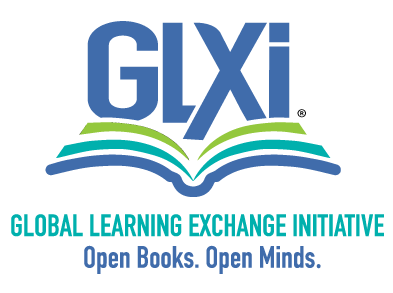Opening Worlds Through Words: How GLXi is Transforming Literacy in Guatemala
Teaching a child to read and write opens the door to worlds beyond imagination.
It not only develops academic skills, but also deepens their understanding of culture, identity, and history. In classrooms across Guatemala, the Global Learning Exchange Initiative (GLXi) is making this transformation possible.
In a small classroom in Sacatepéquez, a young student picks up his pen and begins to write about helping his mother at the market. This simple act, guided by a My Word Notebook, marks the beginning of a journey in literacy.
Rather than practicing repetitive vocabulary, his teacher encourages personal storytelling. Later, his story becomes a class-wide shared reading activity.
This approach is rooted in GLXi’s mission: to bring effective, culturally relevant, and globally inspired teaching practices to classrooms across Guatemala.
Drawing inspiration from early literacy programs in Colombia, Chile, Finland, and grassroots efforts in Africa and Asia, GLXi provides educators with the tools to combine local culture with global educational standards.
A Global Framework, A Local Voice
GLXi helps teachers design their own materials, blending international standards with elements from Guatemalan life: drawings of Maya textiles, local languages, or stories about volcanoes. This makes reading and writing not only accessible but deeply personal and engaging for students.
Through programs like Open Books, Open Minds (OBOM) and Open Minds in Action, GLXi promotes critical and comprehensive reading, purposeful writing, and Universal Design for Learning (UDL). These methods help students connect texts to their own lives, especially in multilingual and multicultural contexts.
In Alta Verapaz, teacher Salvador Isaías Sisay brings texts to life by guiding his third-grade students to discuss culturally relevant readings and reflect on their personal connections to them. For students with diverse abilities, he uses UDL strategies: drawing for beginners, key-word writing for intermediates, and full storytelling for advanced learners.
Literacy Through Storytelling and Expression
Stories become bridges between lived experience and academic learning.
Marta, a second grader in Quetzaltenango, wrote about a hen traveling by bus to Xela. Using drawings and new vocabulary, she proudly shared her story with the class. Her teacher incorporated reading circles and diverse texts to turn Marta’s creative expression into a collaborative learning moment.
These classroom practices meet national literacy benchmarks while reflecting international best practices. GLXi-trained teachers are fostering students who are more critical, expressive, and better prepared for academic success and meaningful participation in society.
Kevin, a previously quiet student in rural Jalapa, now actively joins group discussions thanks to his teacher’s use of dramatized reading, learning corners, and child-authored stories.
These methods help students like Kevin bridge the gap in reading comprehension in a practical, human-centered way.
A Community of Learning and Innovation
GLXi provides virtual training, culturally relevant materials, and interactive resources to teachers in Guatemalan schools.
Teachers also connect via WhatsApp groups to share ideas and best practices. For example, teacher Marta Lidia shared a short video on Finland’s free-writing techniques, which others adapted for their classrooms.
Participatory evaluation is at the heart of GLXi. Teachers give feedback after every workshop, influencing the design of new materials and training topics. This feedback loop ensures that GLXi remains responsive and effective.
Global Ideas, Local Implementation
GLXi has successfully adapted global literacy models for the Guatemalan context:
The Australian "Big Book" model has been used to create large-format stories in Indigenous languages.
Finnish-inspired daily writing is now common in My Word Notebooks.
Learning corners and mobile libraries from Brazil, Colombia, and Uruguay are reaching rural villages.
In Pachalí, teacher Antonia Osorio displays student-created stories on giant posters, featuring K’iche’ dialogue and familiar settings. The K'iche' language is a prominent Mayan language spoken primarily in the highlands of Guatemala.
In Quiché, teacher Manuel Ventura encourages emotional expression through daily journal entries. These international practices, grounded in local culture, make learning more relatable and meaningful.
Digital Literacy for All
Digital access in Guatemalan schools is still uneven, but GLXi ensures teachers are not left behind. Through training in tools like Padlet, Canva, and Google Classroom, teachers create engaging, tech-driven lessons.
When teacher Blanca Cojolón received her first projector, she didn’t know how to use it. With GLXi’s support, she now leads digital storytelling days where students watch, listen, and write about what they see and hear.
In communities without internet, GLXi provides offline resources, printed materials, and projectable digital libraries. Teacher María Yesenia Pérez, once limited to chalk and recycled paper, now presents illustrated stories without needing a live connection.
GLXi emphasizes that digital literacy isn’t just about technology; it’s about meaningful experiences. Facilitators guide teachers step by step, helping them transform digital tools into powerful educational moments.
Looking Forward: An Inclusive, Human-Centered Future
Education in Guatemala has changed dramatically over the last two decades. Chalkboards have given way to Chromebooks, and isolated classrooms are now connected through national and global networks. GLXi is ensuring this evolution is inclusive and sustainable.
Whether through a child’s story about a hen on a bus, a classroom discussion in K’iche’, or a digital mural made on Padlet, GLXi is helping students and teachers turn literacy into a doorway to the world.
With culturally rooted methods and global inspiration, GLXi is not just teaching reading and writing. We’re opening minds, building confidence, and transforming futures.



